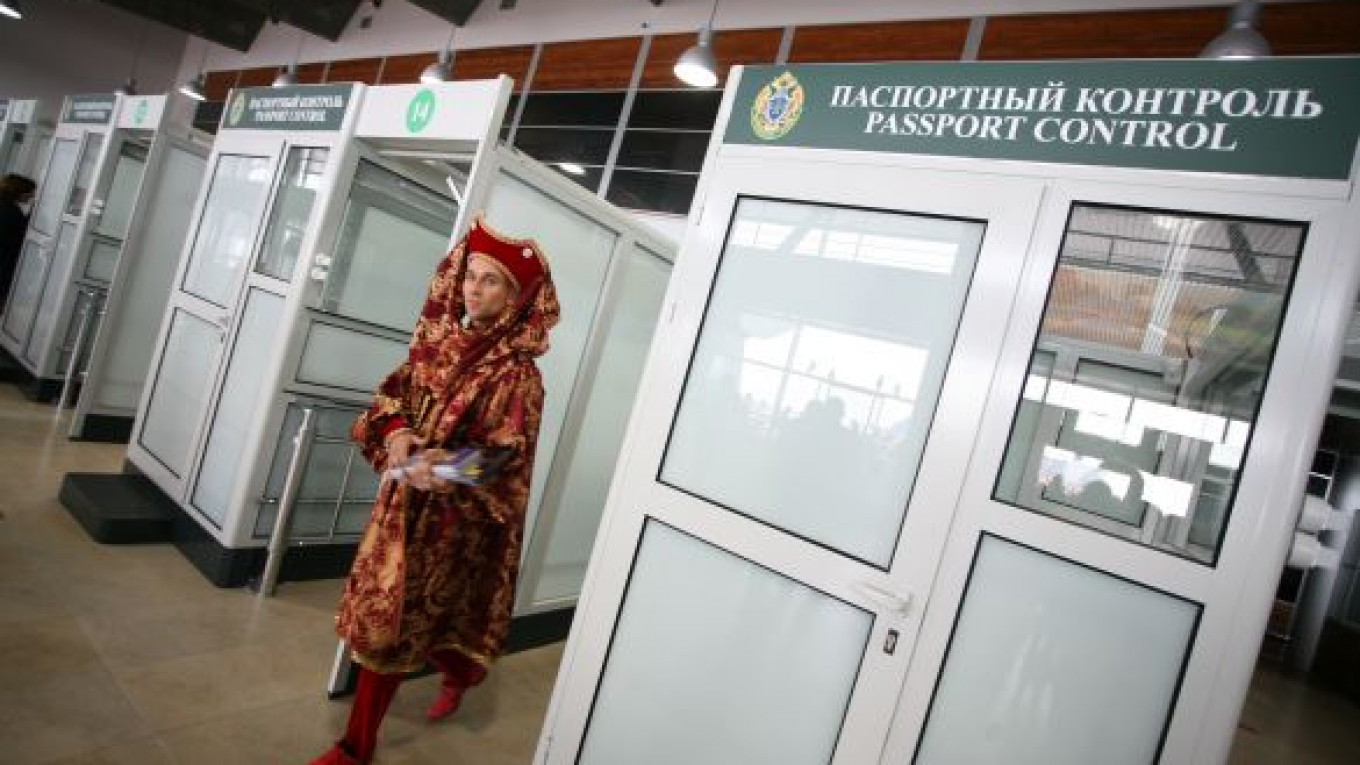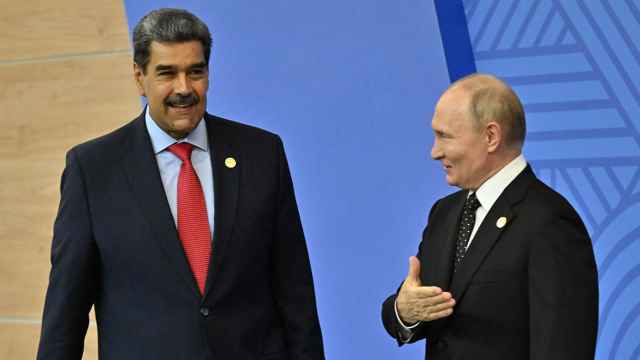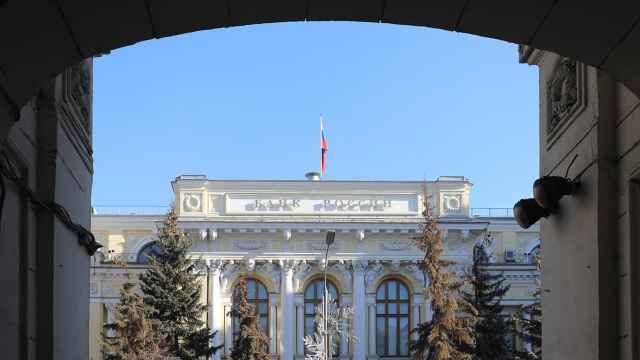After months of delays, the government has finalized a much-touted visa agreement with the United States and drafted the corresponding bill, though it was unclear Wednesday when the State Duma would hear it.
Prime Minister Dmitry Medvedev approved the bill and ordered it to be sent to the Duma, the government said in a decree on its website.
The decree was dated and published May 25 but only became known when national media reported it Wednesday.
An aide to Alexei Pushkov, head of the Duma's International Affairs Committee, said Wednesday that the bill has yet to arrive in the parliament.
"Expect this to happen in the next few days," said the aide, who refused to be identified by name. She added that the committee would then discuss when to hear the bill for ratification.
The visa agreement between Washington and Moscow stipulates that successful applicants from both countries would automatically get three-year multientry visas.
It would also do away with the cumbersome requirement of a written invitation.
The facilitation will be felt mostly by Americans because U.S. consulates already give two-year multientry visas to most Russian applicants and require no invitations.
The agreement has been beset by delays in Moscow's government bureaucracy since it was announced in June 2011 by then-U.S. Ambassador John Beyrle.
Foreign Minister Sergei Lavrov had promised that it would enter into effect by Dec. 25 of last year.
Under U.S. law, the agreement can go into force by a mere exchange of notes, but Russian law demands ratification in both houses of the legislature.
Lawmakers from United Russia have hinted that they would not consider the bill before the U.S. presidential election in November.
A Message from The Moscow Times:
Dear readers,
We are facing unprecedented challenges. Russia's Prosecutor General's Office has designated The Moscow Times as an "undesirable" organization, criminalizing our work and putting our staff at risk of prosecution. This follows our earlier unjust labeling as a "foreign agent."
These actions are direct attempts to silence independent journalism in Russia. The authorities claim our work "discredits the decisions of the Russian leadership." We see things differently: we strive to provide accurate, unbiased reporting on Russia.
We, the journalists of The Moscow Times, refuse to be silenced. But to continue our work, we need your help.
Your support, no matter how small, makes a world of difference. If you can, please support us monthly starting from just $2. It's quick to set up, and every contribution makes a significant impact.
By supporting The Moscow Times, you're defending open, independent journalism in the face of repression. Thank you for standing with us.
Remind me later.






